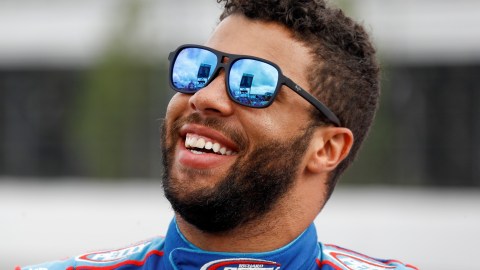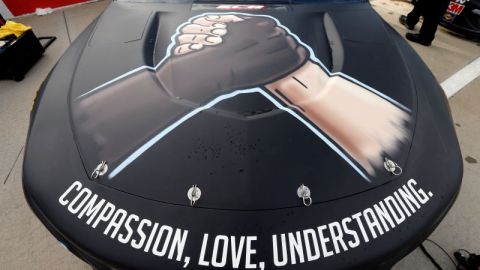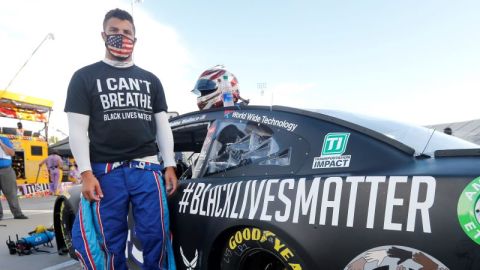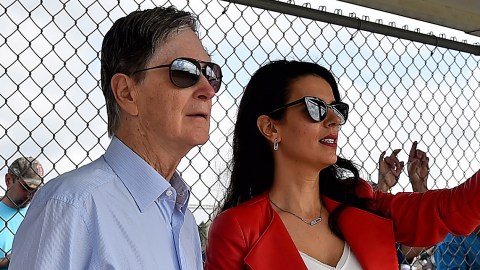 For the sake of the NBA players union, LeBron James needs to become president.
For the sake of the NBA players union, LeBron James needs to become president.
It is truly as straightforward as that. Although sources cautioned FOX Sports that the reigning league Most Valuable Player is “unlikely” to pursue the top position in the National Basketball Players Association at the organization’s meeting this month, the fact that he is at least mulling candidacy is a significant step — and one the union cannot allow him to back away from so easily.
Whatever one’s personal feelings about James, his ascendance to union president would change everything in the league’s relationship with its players. The NBPA is in turmoil. The last two years have been wracked by dissension in the ranks, with membership breaking into camps behind either executive director Billy Hunter or outgoing president Derek Fisher. Accusations of nepotism and secrecy have whittled away at the union’s power from within while 30 united owners have taken care of weakening the union from without. When an organization’s leadership cannot even demand the respect of its own membership, it cannot hope to demand the respect of outsiders.
Since Patrick Ewing departed as NBPA president in the late 1990s, union representation has been viewed, at times among players, as a punitive reward. End-of-bench veterans and fringe rotation players often serve as teams’ union representatives. The executive committee role call reads like a list of trading cards most kids would throw out: Jerry Stackhouse, James Jones, Matt Bonner, Stephen Curry, Willie Green, Andre Iguodala, Chris Paul and Roger Mason Jr. Only Curry, Iguodala and Paul have been All-Stars. Only Paul is recognizable to the casual fan.
This is not to disparage the work of the role players at the top of ledger in the union. Mason and Green are strikingly insightful and can easily be imagined as Congressmen or community leaders once their playing days are over. Green was the starting shooting guard for a Clippers team that won 17 straight games in one stretch last season. Mason shot better than 41 percent beyond the 3-point line with the Hornets. They are solid, respected players in their locker rooms and among close NBA watchers. Outside those two select groups, nobody knows who they are.
It is an unfortunate reality of society that what is being said often matters less than who is saying it. Shane Battier‘s intelligence dwarfs Shaquille O’Neal‘s or Charles Barkley‘s, but the latter two get to expound on political and social topics simply because they are recognizable in popular culture. No matter how well players like Fisher, Mason and Green might understand the minutia of the collective bargaining agreement, if they stand side-by-side with James to talk about labor issues, the scrum of reporters is going to flock to James. People know him. He’s the face of the NBA, though not the face of the players union.
The thing is, history has shown the impact when the league’s biggest star and the leader of the players as a collective are one and the same. Bob Cousy was the NBA’s first superstar when he founded the union in 1954. Bill Russell assumed a major role as his star grew, although Tom Heinsohn held the official title of president and the NBPA as we know it did not fully form until Oscar Robertson‘s landmark lawsuit in 1970, which led to extensive liberalization of the NBA’s labor practices. Isiah Thomas helped ensure the players shared in the profits as the league’s popularity grew to unprecedented levels in the early 1990s, and Ewing worked doggedly to avoid a complete cancellation of the season in 1999.
Since Ewing’s departure, however, the NBPA has gone through an era filled with givebacks to the owners under the stewardship of lesser-known players, with Hunter largely leading the way. In the process, players have seen their portion of league revenue fall while Hunter became absurdly wealthy relative to his actual performance. A schism was inevitable. The most surprising part was that it took this long.
Now try to imagine such a break happening with James as president. It’s impossible. And the necessity for the union to present a united front will come into focus in 2017, when many experts expect the NBA to opt out of the current CBA four years early. The league could be headed for another lockout — remember, it’s not a “strike” or a “work stoppage,” but a “lockout” — creating yet another public relations challenge for the league and the players. If the players are to come out on top in negotiations and in the realm of public opinion for the first time in close to two decades, their leader must be someone who wields a hammer not just in the board room but in front of the cameras.
Being NBPA president — a good one, anyway — will be extra work for James. He has expressed a desire not to take on such extracurricular responsibilities of late, declaring that he will no longer represent the U.S. in international competitions and, that at age 28, he wants to focus more on the actual NBA games that pay his salary. At some point, possibly within the next few weeks, James may have to decide between what he wants and what his colleagues need. It will not make him any more well-liked among a lot of fans, but if James got into this business to be liked, he has already failed. Long criticized for turning down the big shot, James will soon have to show whether he will go for the win or once again pass the ball away in the clutch.
Have a question for Ben Watanabe? Send it to him via Twitter at @BenjeeBallgame or send it here.



